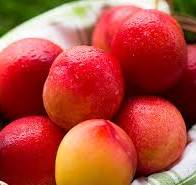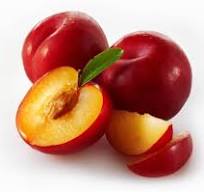Hey guys! Today, I want to talk about one of my favorite fruits that we often enjoy in our daily lives: plums. Plums are delicious and packed with nutrients, making them super popular. Let’s dive into what happens if you don’t get enough of the benefits from plums, what plums are all about, their amazing benefits, how to consume them, and any side effects. Ready? Let’s go!



What Happens If You Don’t Get Enough Plum Benefits
Plums are rich in vitamin C, dietary fiber, and antioxidants, which are super important for our health. But what happens if you don’t get enough of these benefits?
- Lowered Immunity: If you don’t get enough vitamin C, your immune system can weaken, making you more susceptible to colds and other illnesses.
- Digestive Issues: Lack of dietary fiber can lead to constipation or digestive problems. Plums can help keep your digestive system running smoothly.
- Skin Problems: Without enough antioxidants, your skin can become dull and age faster. Plums help keep your skin healthy and glowing.
- Blood Pressure Issues: Not getting enough potassium can cause blood pressure to rise. Plums are great for keeping your blood pressure in check.
What Are Plums?
Plums belong to the rose family and are known for their sweet and tangy flavor. They come in various colors like purple, red, and yellow, and sizes can vary too. You can eat plums fresh, or use them in jams, juices, and dried fruit snacks. Originating from Asia and Europe, plums are loved all around the world.


Amazing Benefits of Plums
- Boosting Immunity: Plums are packed with vitamin C, which helps boost your immune system. Especially during times when viruses are spreading, eating plums regularly can be really helpful.
- Improving Digestion: Plums are high in dietary fiber, which aids digestion and prevents constipation. Eating a plum every morning can do wonders for your digestive health.
- Healthy Skin: Plums are loaded with antioxidants that keep your skin young and healthy. Eating plums can make your skin smooth and elastic.
- Eye Health: Plums contain vitamin A, which is great for your eyes. They help relieve eye fatigue and protect your vision.
- Weight Management: Plums are low in calories and make you feel full, which is perfect for dieting. They’re a great snack option when you’re trying to watch your weight.
- Blood Pressure Control: Plums are rich in potassium, which helps regulate blood pressure. They’re effective in preventing high blood pressure.
- Bone Health: Plums contain vitamin K and copper, which support bone health. These nutrients help maintain bone density and prevent osteoporosis.
How to Consume Plums
- Eat Them Fresh: The easiest way is to wash them and eat them fresh with the skin on. The skin has a lot of nutrients too, so don’t peel it off!
- Add to Salads: Slice plums thinly and add them to your salads for a sweet and tangy twist. Plum salads are refreshing and perfect for summer.
- Make Juice: Blend plums to make juice. It’s a cool and refreshing drink, especially on hot days.
- Make Jam: Cook plums with sugar to make jam. It’s delicious on toast or in desserts.
- Dried Plums: Dry the plums to make a convenient and long-lasting snack. Dried plums are perfect for carrying around and munching on the go.
- Smoothies: Blend plums with other fruits for a nutritious smoothie. Plum smoothies are a great way to get a burst of vitamins and minerals.
- Desserts: Use plums in various desserts like plum pie or plum tart. These are delicious ways to enjoy the sweet taste of plums.


Side Effects of Plums
While plums are generally safe and healthy, there are a few things to keep in mind:
- Diarrhea from Overconsumption: Eating too many plums can cause diarrhea due to the high fiber content. Moderation is key.
- Allergic Reactions: Some people might be allergic to plums. If you experience hives or itching after eating plums, stop and consult a doctor.
- Kidney Issues: Plums are high in potassium, so people with kidney problems should moderate their intake. Consult your doctor if you have any concerns.
- Natural Sugars: Plums contain natural sugars, so if you have diabetes, you should consume them in moderation. Keep an eye on your blood sugar levels.
Today, we learned all about plums and their incredible benefits. Plums are definitely a super healthy fruit, but like with anything, it’s important to eat them in moderation. Enjoy plums in various ways to keep your diet interesting and nutritious. Stay healthy and happy, everyone!


